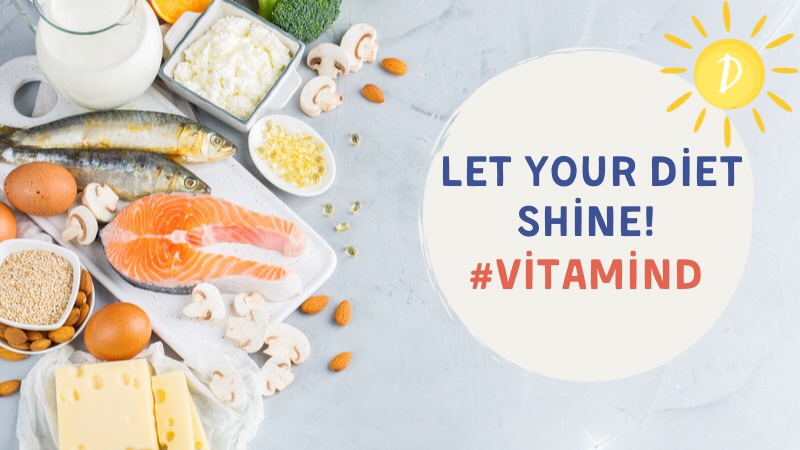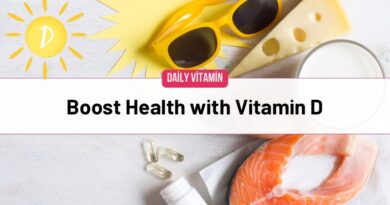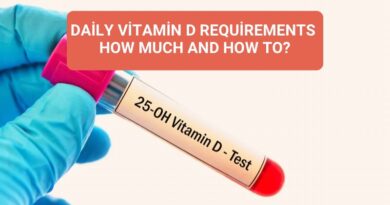
Illuminating Vitamin D Sources: Bringing the Sunshine into Your Diet
Vitamin D, colloquially known as the ‘sunshine vitamin’, is a crucial nutrient for our overall well-being. Its vital roles range from supporting bone health to bolstering our immune system, contributing to cardiovascular health, and potentially regulating mood disorders 1. Despite its importance, obtaining adequate vitamin D can prove to be a challenge due to various lifestyle factors. This article aims to highlight the key sources of vitamin D to help ensure you’re meeting your daily requirements.
1. Sunlight
Sunlight is the most natural source of vitamin D. When UVB rays hit the skin, they trigger vitamin D synthesis, hence the nickname ‘sunshine vitamin’ 2. However, factors like latitude, altitude, time of year, air pollution, and skin pigmentation can significantly influence the amount of vitamin D your body produces. Furthermore, extensive sun exposure poses skin cancer risks, making it crucial to find a balanced approach.
2. Fatty Fish
Fatty fish are among the richest natural food sources of vitamin D. Salmon, mackerel, and trout, for example, offer substantial amounts of this nutrient 3. Incorporating these into your diet not only bolsters your vitamin D intake but also offers other health benefits due to their high omega-3 fatty acids content.
3. Fortified Foods
Due to the scarcity of natural food sources high in vitamin D, many foods are fortified with this nutrient. These include dairy products like milk and yogurt, non-dairy milk alternatives (e.g., soy, almond, and oat milk), breakfast cereals, and orange juice 4. Always check the nutrition labels to ascertain the vitamin D content.
4. Eggs
Eggs, particularly the yolks, are a good source of vitamin D, making them a convenient addition to many meals 5. They also provide several other essential nutrients, including high-quality protein, B vitamins, and selenium.
5. Cod Liver Oil
While not particularly appetizing to many, cod liver oil is an excellent source of vitamin D 6. It’s often available in capsule form, making it an easier and more palatable option. However, it’s high in vitamin A, which can be harmful in excess, so moderation is key.
6. Mushrooms
Interestingly, certain types of mushrooms, when exposed to UV light, can produce vitamin D, specifically D2. While this form is not as efficiently used by the body as the D3 found in animal products, it can still contribute to your daily intake 7.
7. Vitamin D Supplements
For those having trouble meeting their vitamin D needs through diet and sunlight, supplements may be a useful option. These typically come in two forms, D2 and D3, with the latter being more effective at improving vitamin D status 8. As always, it’s crucial to consult with a healthcare provider before starting any supplement regimen.
In conclusion, while sunlight remains the most well-known source of vitamin D, several dietary options and supplements can help ensure we meet our daily requirements. It’s essential to keep a diversified approach in mind, as each source comes with its unique benefits and considerations. Remember to consult with a healthcare professional before making significant dietary changes or starting a supplement routine.
References:
- The Big Vitamin D Mistake.
- Vitamin D and your health: Breaking old rules, raising new hopes.
- Vitamin D: Fact Sheet for Health Professionals.
- 9 Healthy Foods That Are High in Vitamin D.
- Eggs 101: Nutrition Facts and Health Benefits.
- Vitamin D in Cod Liver Oil.
- Bioavailability of vitamin D2 from UV-irradiated button mushrooms in healthy adults deficient in serum 25-hydroxyvitamin D: a randomized controlled trial.
- Comparative efficacy of vitamin D2 and D3 supplementation in raising blood 25-hydroxyvitamin D status: systematic review and meta-analysis of randomized controlled trials.



